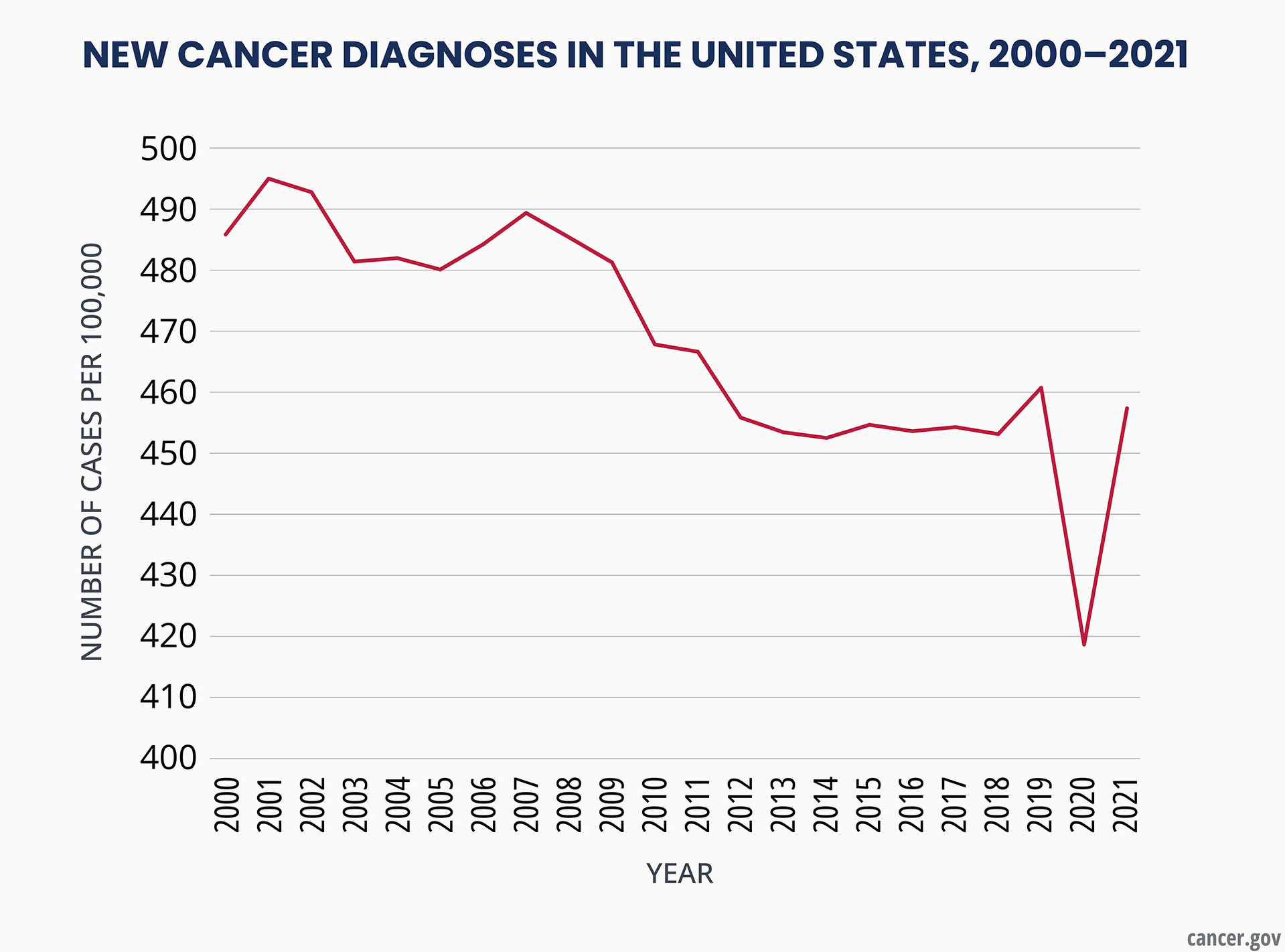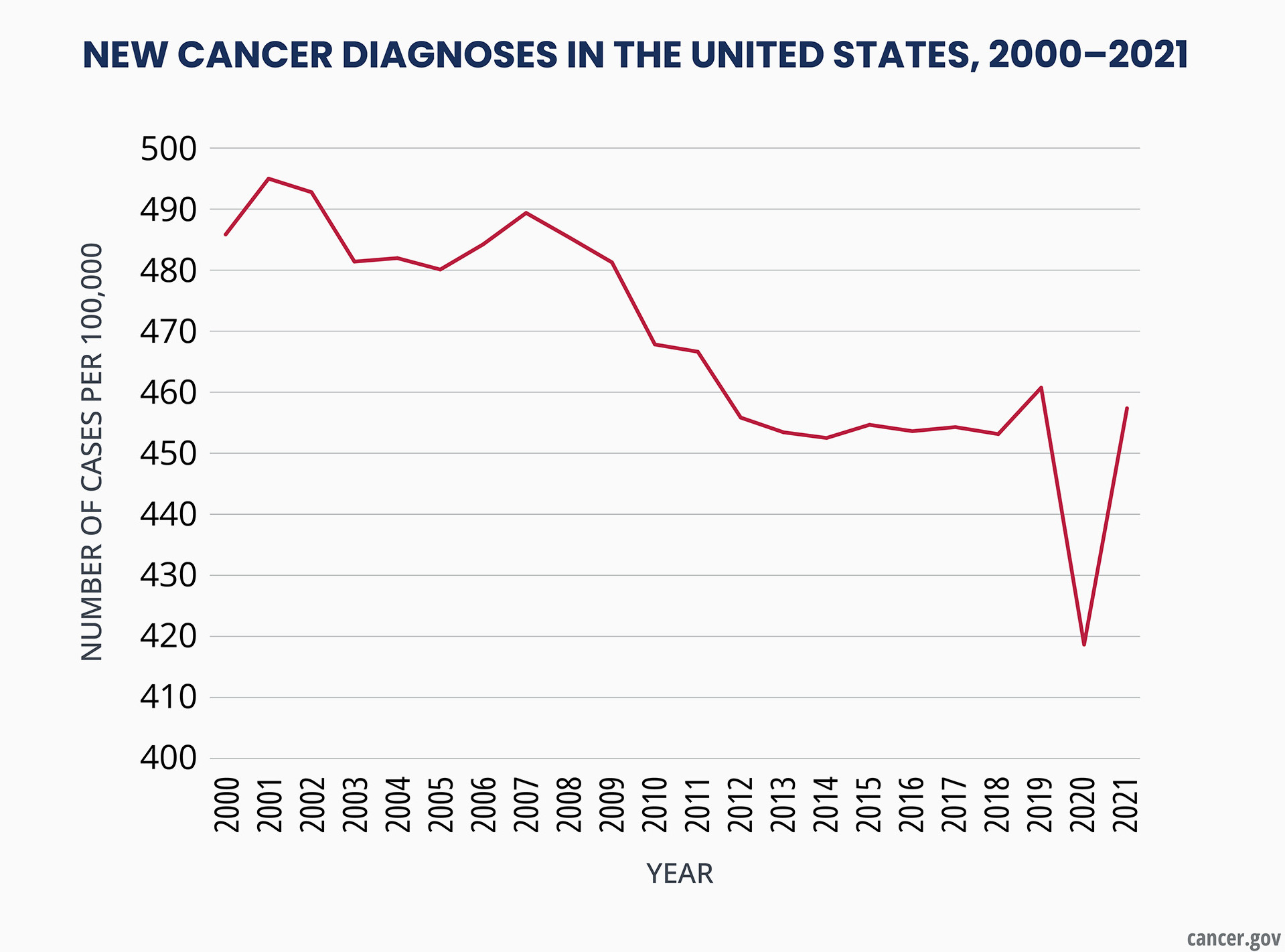
Media Advisory
Tuesday September 24, 2020
What is the best way to reach you?
Cancer incidence rates in 2021 will be similar to those before the COVID-19 outbreak, according to a report from the National Institutes of Health. There is no evidence that cancer incidence rebounded in 2021, which would explain why diagnoses declined in 2020 when medical screenings and care were disrupted. Researchers found an increase in breast cancer diagnoses in 2021. The article appears in the September 24, 2024, issue of Journal of the National Cancer Institute
Previous research has shown that the number of cancer cases and pathology reports dropped sharply in early 2020. This suggests that cancers are not being detected in time. Researchers at the NIH's National Cancer Institute (NCI) compared cancer incidence rates in 2021 with pre-pandemic trends using data collected in 2009. NCI End Results, Surveillance and Epidemiology Program.
To account for missed diagnoses, a full recovery in cancer incidence would appear to be an increase from the pre-pandemic period (also called a rebound). The researchers looked at five types of cancer that are detected differently: through screening (prostate cancer in women), through symptoms (lung, bronchus, and pancreatic cancer), or during medical procedures.
The 2020 decline was not due to a significant recovery. The data showed that in addition to an increase in new diagnoses of advanced breast cancer, evidence also suggested an increase in diagnoses of advanced pancreatic carcinoma in 2021. Thyroid cancer diagnoses in 2021 were also below pre-pandemic levels.
The researchers concluded that 2021 will be a time of transition, with new COVID-19 variants still affecting medical care. The researchers said the findings highlight the importance of continued surveillance to better understand the long-term effects on cancer diagnosis and outcomes.
What are you waiting for?
Nadia Howlader Ph.D. Division of Cancer Control and Population Sciences National Cancer Institute
Study
“The impact of COVID-19 in 2021 on cancer incidence rates and potential rebound from 2020 decline", appears on September 24, 2024 in the Journal of the National Cancer Institute
The National Cancer Institute: NCI leads the National Cancer Program, NIH, in its efforts to reduce the prevalence of cancer and improve the lives of cancer patients and their families through cancer research, development of new interventions, and training and mentoring of new investigators. Please visit the NCI website for more information about cancer. cancer.gov Call the NCI Contact Center at 1-800-4CANCER (800-422-6237).
The National Institutes of Health: The NIH is the medical research agency of the U.S. Department of Health and Human Services. It consists of 27 institutes and centers. The NIH, the nation's medical research agency, is an integral part of the U.S. Department of Health and Human Services. It is responsible for conducting basic, translational, clinical, and other medical research. Visit the NIH website for more information about its programs and services. www.nih.gov.
NIH…Transforming Discovery into Healthcare(r)
###


